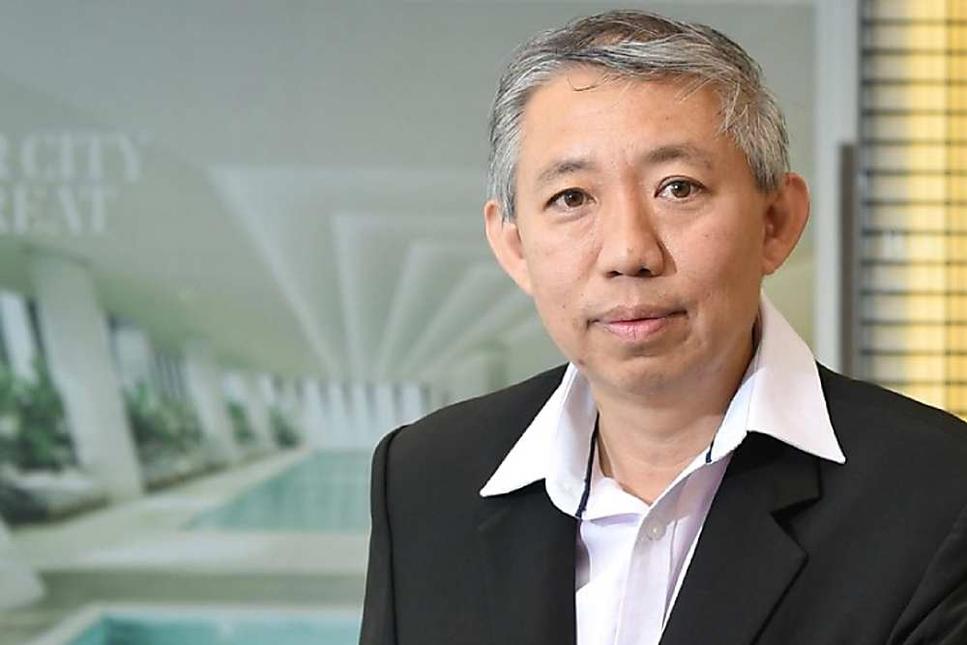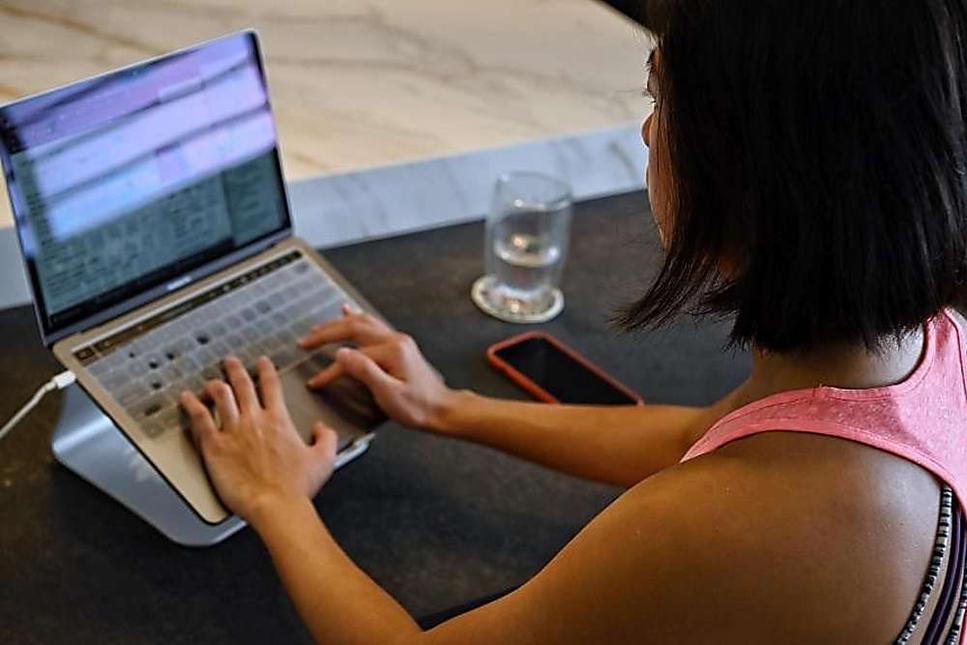Lunch with Sumiko
‘But you sell duck rice’: Siblings behind Chicha San Chen bubble tea in S’pore on early scepticism
Seah Boon Lock grew the Yew Kee duck rice brand his father started. With his encouragement, his children have opened 30 outlets of the Chicha San Chen bubble tea brand from Taiwan.
Whenever Mr Seah Boon Lock took his family out for dinner on weekends, his daughter, Kun Miao, would be scurrying around in search of bubble tea.
Waiting for her, it struck him how one bubble tea chain was pretty much like another. Even the teas tasted the same.
“I was thinking, why is it that nobody makes it more special? I told my children, ‘if you like bubble tea so much, go find a brand that is different, unique, and I will invest in it’,” he recalls.
Kun Miao, 29, and her brother, Qin Quan, 30, did just that.
In May 2019, the Seah siblings opened the first Chicha San Chen store in Singapore at 313@Somerset. The name translates from Mandarin to English as “eat tea three thousand”.
They have since set up 30 outlets of the Taiwanese brand including in shopping malls such as Ngee Ann City, Plaza Singapura, Jem and Nex.
The bubble tea market in Singapore is big, with one study estimating it to be worth US$342 million (S$462 million) a year. In a saturated market, the Chicha San Chen brand has managed to amass a loyal following (disclaimer: I’m a fan, too).
Unlike most other chains where the tea is pre-prepared and dispensed from cannisters, each Chicha San Chen order is individually and freshly brewed using a “teapresso” machine. You can taste and smell the aroma of the leaves.
The packaging is just as impressive. Every cup is carefully sealed with a sticker, and cup holders come with a handcrafted jute twine to make it easier to carry. For uniformity, each twine measures 116cm and one side is looped like a ribbon to symbolise how the tea is a gift to customers. Paper bags for takeaways are thick and sturdy.
The outlets’ decor is bright, modern and minimal, and servers don smart uniforms. The menu is relatively small and the tea pricier than some other brands, but customers seem happy to pay for the quality.
Mr Seah, 61, is no stranger to the food and beverage business.
He left school early to help his father, a hawker, sell Teochew braised duck rice under the Yu Kee brand, and diversified to other food. He tweaked the name to Yew Kee in 2022.
He is now chairman of the YKGI group, which runs 77 food outlets under brands such as Yew Kee Duck Rice, XO Minced Meat Noodles, PastaGo, Victoria Bakery, and Chicha San Chen. He has a central kitchen in Woodlands, two halal-certified My Kampung foodcourts and two Fine Food foodcourts.
YKGI also holds the exclusive franchise in Singapore for the Taiwanese bubble tea. Earlier in February, it listed on the Singapore Exchange’s Catalist board.

I’m meeting Mr Seah and his children at the Yew Kee Specialities restaurant in Kallang Wave Mall, which also houses a Chicha San Chen outlet and a My Kampung foodcourt.
Mr Seah is youthfully dressed in a black T-shirt, beige jeans and designer loafers. He has a jovial, cheerful demeanour, which Kun Miao shares. Qin Quan is a quieter presence.
Their mother, Madam Jessica Wee, 57, is the company’s chief administrative officer. “She is too shy to do interviews,” says Mr Seah in Mandarin.
He has a relaxed manner with the children.
“He’s like the clown of the family. The cook and the clown,” says Kun Miao.
“I seldom scold,” her father says. “I speak to them as if they are friends.”
Qin Quan, whom friends call QQ, has a theory about this. When the children were young, Mr Seah was too busy with work to spend a lot of time with them, and it was left to their mother to discipline them.
“When we were in secondary school, he probably had more time on his hands and we would hang out more. We talked to each other more like friends than as father and son,” he says. “We don’t really feel pressure when we are with him.”
Mr Seah orders us a mouth-watering spread of Yew Kee favourites such as tender braised duck, tau pok (braised beancurd), peanuts, roasted meats, rice and soup. He insists that lunch is on the house.
“You like the chilli?” he asks, and looks pleased when I nod. He was behind the store’s version.
He urges me to try the soup which accompanies the duck rice.
“Do you feel it has a bit of herbal taste, like bak kut teh?” he asks. It does indeed.
“He loves, loves, loves cooking,” reports his daughter. “He’s our hawker centre.”
The meal isn’t complete without Chicha San Chen bubble tea and we all get something different.

First came duck
Mr Seah’s father, Mr Seah Teck Yew, was born in Singapore and started selling Teochew braised duck rice from a pushcart in the Sembawang area in the 1950s.
The business was later called Yu Kee, combining the “Yew” in his name and the word “ji”, which is typically used to indicate a food business in Chinese. Yu Kee is the Teochew form of the name.
The family was originally from Anxi in Fujian province. “We are Hokkien but we do Teochew braised duck,” says Mr Seah.
The patriarch had five sons and four daughters. Mr Seah, the youngest boy, started helping his father with chores even before he entered Sembawang Primary School.
He quit his studies before Primary 6. “Even if I took the PSLE, I wouldn’t pass. I preferred to move around and help out, get a bit of money,” he says.
His father retired in 1980, when Mr Seah was 19.
“My father was smart. When he retired, he asked the five of us brothers not to work together but to expand Yu Kee individually instead. He thought that while the siblings may not have an issue working together, their wives might, so it was better we handled the business separately,” he recalls.
The brothers ran their own hawker stalls selling duck rice. For a while, Mr Seah rented a stall from a brother, operating at night while his sibling took the morning slot.
When he was 26, he opened his own stall at a coffee shop at Block 744 in Yishun.
He introduced boneless duck meat to his offerings which attracted younger customers. But older ones complained. “They wanted to be able to suck on the bones.”
The elder Mr Seah died of a stroke in 1991 at the age of 68.
By the 1990s, there were about eight Yu Kee duck rice stalls run by the brothers.
By then, Mr Seah had got married. “My wife said one stall was not enough to sustain the family, so we decided we needed more outlets.”
But they met with misfortune in 2003 when Singapore was hit by an outbreak of severe acute respiratory syndrome, or Sars, followed by bird flu in 2004 and 2006. Those were dark days.
“I lost a lot of money and decided that I cannot just rely on selling duck rice alone. I needed to diversify,” he says.
He created other brands to sell bak chor mee and halal versions of dishes like char kway teow. Later, he added Penang-style food and went into the foodcourt business.
“When we encounter a crisis, staying optimistic and positive helps us to come up with ideas to expand the business,” he says.
By 2019, he had just under 40 food stalls and foodcourts.
The children chipped in to help. Qin Quan worked in the central kitchen and his sister tended to cash registers. They have fond memories of how, as children, they would accompany their mother as she drove from stall to stall to collect takings. “When she got out to collect the money, I would lock the car. When she came back, I would unlock the car. So that was my role,” says Kun Miao.
Qin Quan studied aviation at Republic Polytechnic and joined his father after he graduated, starting as operations manager in 2015. He became chief executive in January this year.
There was no pressure from his parents. “It was my decision,” he says simply.
Did you negotiate a salary, I ask.
“Not really. I mean, if you want to help out, probably it’s not about the pay already. It’s about how to carry on the family business.”
The company then was very traditional, and he had to look into getting it on social media and delivery platforms.
Kun Miao, who studied marketing at Nanyang Polytechnic, went to Switzerland to get a degree in hotel and hospitality management, then worked in various jobs including in influencer marketing.
“I told her that I couldn’t manage the whole marketing department because I had to run operations, and asked her to help us,” Qin Quan says.
She joined the business in 2018 as marketing director. She feared there would be no separation between work and family life but now values how she has more flexibility to do what she wants, and likes that there is trust between them.

Then came bubble tea
The siblings went in search of a bubble tea brand after Mr Seah threw them the challenge.
Kun Miao first came across Chicha San Chen in 2018 at a franchising and licensing fair held in Singapore.
The stall wasn’t particularly attractive, although the tea was good. They spoke to the Taiwanese team there but weren’t convinced this was the brand for them.
Later that year, while the family were on holiday in Taiwan, they stumbled on Chicha San Chen’s three-storey store in Taichung.
“The attention to detail and precision blew our mind,” she says. “We later realised it was the same brand that we had encountered at the fair.”
The brand’s parent company, Fang Yuan F&B International, founded the Tea Shop bubble tea chain in Taichung in 1998, targeting the mass market.
It created Chicha San Chen in 2015 as an upmarket brand to promote Taiwanese tea culture and heritage. By the time the Seah siblings came knocking, it had one outlet in Taichung and two in Xiamen in China.
The siblings contacted the company to say it was interested in a franchise, and started working on their proposal when they returned to Singapore.
They flew back to Taiwan to present it in person, then Xiamen to check out how Chicha San Chen did business there. Interested, a team from Taiwan came to Singapore to evaluate the Seahs as partners. An agreement was inked during that trip.
Mr Seah says: “The Taiwanese boss wanted to make sure that their brand would survive.”
Sourcing a location for their first store proved a challenge, however. Many popular Taiwanese bubble tea brands were entering the Singapore market in 2019, and most landlords would offer units only to popular names.
Chicha San Chen was a new brand that no one had heard of and had only one store in Taiwan. Landlords were also sceptical of the brand’s unusual “teapresso” machine. Kun Miao says: “Many told us to our faces that ‘you are just another bubble tea brand’. What did not help too was that we were a braised duck seller.”
The siblings, on their part, had demands that landlords found hard to meet.
They wanted their first store to be their flagship. This meant a large space to duplicate the retail experience in Taichung, such as a layout where customers could see their tea being made with “full transparency”.
In summary, their proposal was viewed as “little chance of success plus lots of requests”, she says.
They finally found a landlord in 313@Somerset and set up their store in May 2019. They pumped $500,000 into that venture.

Privately, the siblings were worried as the company had no experience in bubble tea, even though it had been selling hawker fare for decades.
“Bubble tea was a different game altogether. It was a big bet. The set-up capital was a lot higher than what we were used to, with the franchise fee, the down payment and deposit for the store, equipment fee, rentals, store renovation and marketing fee,” says Kun Miao.
“We had to solve a lot of operational issues and technical problems. Every day was trial and error.”
Then came Covid-19, when bubble tea shops had to close for a period in 2020. But the brand has expanded rapidly since.
While it has rights only for Singapore, the company has the exclusive franchise and licence to operate Chicha San Chen here for 10 years from January 2019.
YKGI was incorporated in 2022 to prepare for its Catalist listing. That year, Yu Kee was rebranded to Yew Kee to better reflect patriarch Seah Teck Yew’s name. There are Yu Kee stalls run by relatives, but these are not related to YKGI.
The company posted an audited net profit of $1 million and $4.9 million for financial years 2019 and 2020 respectively, and $8.9 million for financial year 2021. It recorded an unaudited net profit of $2.4 million for the first half of 2022. Chicha San Chen contributed nearly 40 per cent to the group’s total revenue in financial year 2021.
Bubble tea might be the more trendy brand, but the siblings – who are single – remain loyal to the dish that started it all.
Qin Quan points out that during the Covid-19 circuit breaker when bubble tea shops had to close, they had Yew Kee duck rice to bundle bubble tea with.
Kun Miao says her dream is for braised duck rice to be regarded as an iconic Singapore dish that visitors must try. Why must it only be chicken rice and chilli crab, she wonders.
As we wrap up lunch, Mr Seah tells me he’s thankful his children have joined him in the business. Many hawkers serve good food but have no successors, he points out.
The future of his company is in the hands of the younger generation, he says generously.
“You need to give them the freedom to explore. If you don’t give them a stage, they won’t go up and sing,” he says.
“I’m not too worried about them making mistakes because everybody makes mistakes. It’s about learning from your mistakes.”
Then, to chuckles from the two, he laughs: “Of course, not too many mistakes, because I’m still observing them from behind. I just don’t let them know.”
- Translation help from Elaine Lee
Join ST's Telegram channel and get the latest breaking news delivered to you.






No comments:
Post a Comment